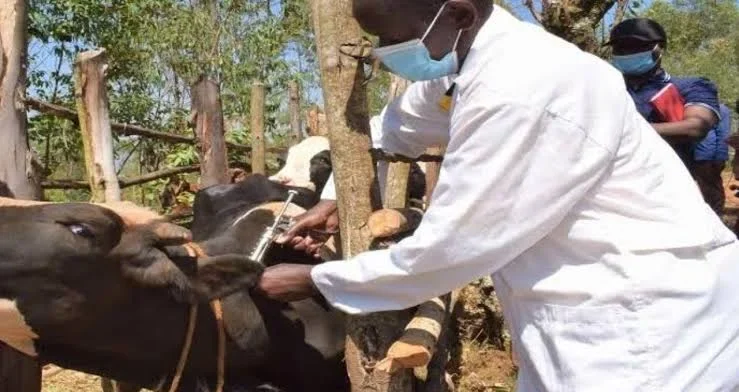The Livestock Productivity and Resilience Support Project (L-PRES) is set to establish and equip 20 model veterinary hospitals across Nigeria’s geopolitical zones with $500 million in funding to improve the quality of animal healthcare.
The National Project Coordinator, Sanusi Abubakar, revealed this in an interview with the News Agency of Nigeria (NAN) on Wednesday in Abuja. The beneficiary states include Adamawa, Taraba, Bauchi, Gombe, Yobe, Borno, Plateau, Niger, Kwara, Kano, Kaduna, Sokoto, Zamfara, Edo, Enugu, Ebonyi, Ondo, Ekiti, and Oyo.
According to Abubakar, seven of the 20 model veterinary hospitals are already at various stages of completion. These hospitals, located in Sokoto, Niger, Enugu, Ondo, Borno, Adamawa, and Edo States, are expected to improve clinical services, offer training, and provide mobile veterinary services to rural farmers.
“The hospitals are designed to enhance clinical services provided by veterinarians, as well as to offer training and ambulatory services for farmers across the 20 states where the project is being implemented,” Abubakar explained.
To ensure accessibility, the project will provide fully operational ambulatory vehicles to deliver mobile veterinary services to farmers in remote areas.
To guarantee long-term sustainability, the L-PRES initiative will collaborate with the private sector through a Public-Private Partnership (PPP) model. Abubakar noted that over 80% of registered veterinarians in Nigeria operate in the private sector, making their involvement critical to the success of the project.
He emphasized that the initiative would also provide mentorship and training opportunities for young veterinarians to enhance their professional skills.
“L-PRES is a $500 million World Bank-funded project currently active in about 20 states across Nigeria,” Abubakar stated. “The objective is to improve the productivity, commercialization, and resilience of livestock value chains.”
The project also focuses on natural resource management, water access, and pasture development to support livestock farmers.
Abubakar confirmed that seven veterinary hospitals have already been established in different geopolitical zones, with an additional eight expected to be completed by the end of the year.
“Our target is to ensure that all 450,000 identified livestock value chain clusters receive veterinary care or services,” he said.
A key part of the initiative is the introduction of an ambulatory service system, which will allow farmers to request veterinary services via phone calls, making expert care more accessible.
Furthermore, the project is working closely with veterinary doctors, paramedics, and community health officers to support farmers’ livelihoods. The model veterinary hospitals will serve as key centers where professionals can collaborate and deliver essential services to farmers.
